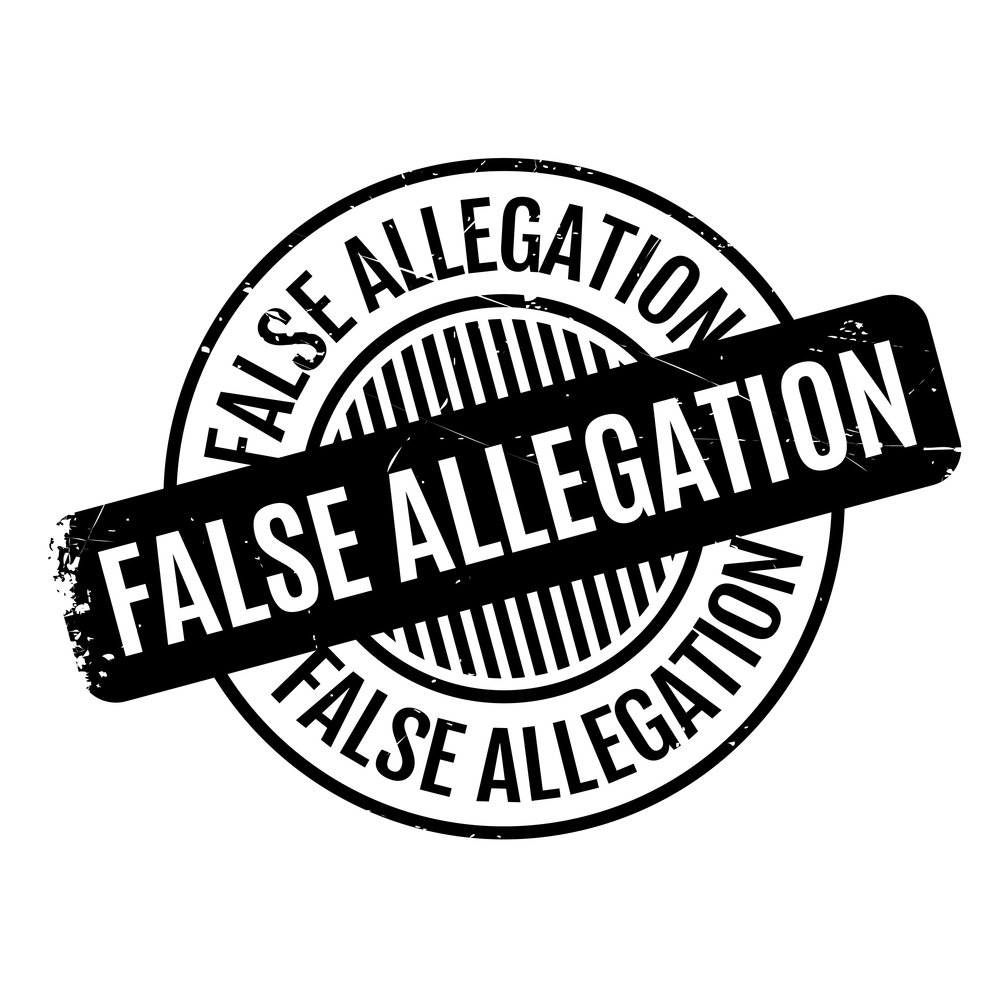Being accused of a crime, especially one that you didn’t commit, can be overwhelming and extremely upsetting.
It can be tempting to act rashly out of shock and anger at the news, but this is the worst thing that you can possibly do in the situation. Even if you know that you had nothing to do with the incident in question you still need to prove it, possibly in a court of law, and the actions you take at this early stage are absolutely critical to the outcome of the case.
If you have a recently been falsely accused or charged with a crime you weren’t responsible for, following these 5 key steps will help to protect yourself from conviction and could well be the difference between being found innocent or guilty.

1) Hire a lawyer
The very first thing that anyone should do when accused or charged with a criminal offence is to hire a qualified criminal lawyer. This holds true no matter the truth or otherwise behind the claims and it is particularly important that those who have been falsely accused of a crime have appropriate legal representation to help them prove it.
Far too many people who have been falsely accused believe that as they are innocent of the crime that the charges will simply go away eventually and don’t even consider the threat of being found guilty until it is too late. The moment you suspect you may be charged, contact an expert criminal defence lawyer in your area who specialises in false accusation law.
They will ensure that you are fully represented throughout the entire process, protecting your rights, and helping you to build your case and counter the charges against you. The perfect lawyer for you will depend on the type of crime it is that you are being accused of and it is important to find someone who specialises in that area of law and false accusation law. For example, if you are accused of a violent crime, find a lawyer who specialises in fighting violent crime cases, and so on.
2) Stay calm
Being accused of a crime you didn’t commit is a horrible feeling and feelings of anger and frustration are understandable. Acting on these feelings, however, is only going to end up with you in more hot water and could give more weight to the charges against you.
No matter what happens in the days and weeks following an accusation staying calm is essential, even if those closest to you believe you may be guilty. Impulsive actions never end well for criminal defendants and calmly processing events as they occur and acting only when your lawyer tells you to will give you the best possible chance of the charges being dropped or being acquitted in court.
3) Stay away from the accuser

When it comes to impulsive actions that could threaten your future and increase the risk of a guilty verdict, approaching or confronting your accuser is right at the top of the list.
If you know the accuser personally and used to be close, it can be tempting to go directly to them to try and talk things out and convince them to drop the charges. Bear in mind, however, that if they could be convinced not to press charges after a single conversation, it is unlikely that they would have made the accusation in the first place. Once facing your accuser, the chances of acting rashly rise significantly and you may well end up saying or doing something that you later come to regret and derails your case completely.
In no circumstances should you threaten your accuser or offer them something to drop the charges. If this information comes up in court, your actions could give the impression of guilt to a jury.
4) Have a lawyer present at all interviews and negotiations
If you are taken in by the police in regards to a crime you didn’t commit, it can be tempting to assume that it is a misunderstanding and a quick chat at the police station will iron everything out.
This may well be the case, but you still shouldn’t engage in any interviews with the police or prosecution without your lawyer present. You have a legal right to a lawyer at all stages of the criminal process and it is critical that you use this right.
5) Never resist arrest
False accusations can often be overturned quickly by a skilled criminal lawyer but if you resist when you are arrested or confront the police you might find yourself in serious legal trouble outside of the initial charges.
The last thing you need is to get a criminal record as a consequence of a misunderstanding and if the case does proceed, resisting arrest is not a great look as it could imply guilt.